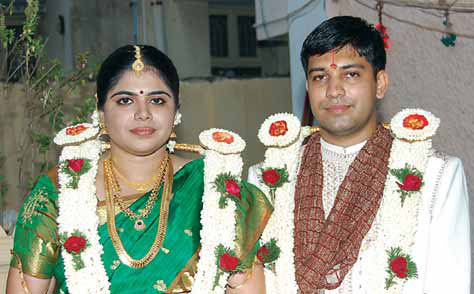
Capt. C S Raghavan is the Country Head HR at Mahindra & Mahindra Co. Ltd. But this is his second career, the first being in the Indian Army, where he also conquered the icy glaciers of Siachen, the highest battleground of the world. In the corporate world too, he has broken new ground, carving out a new niche as ace Dealer HR. What took him to scale the Siachen, and what challenges him in a hitherto unexplored corporate domain?
Capt. C S Raghavan (Sundara Raghavan Chakravarthy) is currently the Country Head HR at Mahindra & Mahindra Co Ltd. for Automobile Channel Partner Retail Sales & Service. He has also been a Senior Business Partner – HR, taking care of after-sales and service of automobile channel retail. Earlier, he worked in the same automobile retail domain as Business Partner HR at TVS Motor Company.
His foray into the corporate sector was as Regional Manager, Human Capital (Recruitment & Generalist) at Future Generali India Life Insurance Co. Pvt. Ltd, serving there from December 2008 to February 2010.
He served in the Indian Army, after joining in 2003 as a Gentleman Cadet at the Officers Training Academy, Chennai, for a little over five years. His role in the army, besides that of a commissioned officer, was of a Human Resource Manager and Administrator (Tech & Non-tech), technically called ‘Officer Commanding and Adjutant’.
He spoke to Corporate Citizen about his childhood ambitions, the challenges that motivated him in the army as well as in the corporate world, and the transition from a military to a management role:
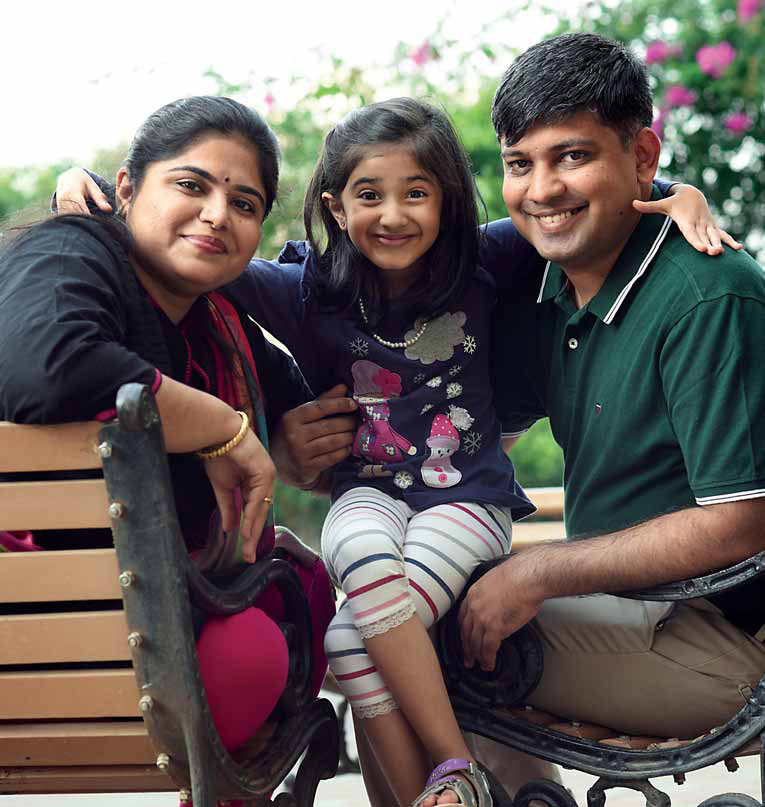
No, my childhood dream was to become a cosmonaut/astronaut. I was born to Tamil Brahmin parents (father Parthasarathy and mother Rangam). I come from a very humble background, and my sister Priya (alias Jaisri) and I were brought up thus. My forefathers for the last four generations worked in the Indian Railways.
I was born in Khandwa, Madhya Pradesh, also the birth place of legendary singer Kishore Kumar. During my school years, our family lived in Bhusawal in Maharashtra.
My ambition was to be an astronaut. I had cleared all the DAMT National Mathematics Olympiad levels. During my school days my mentor and teacher Mr Swaminathan Iyer, gave me the right guidance on the kind of books I should read to enhance my knowledge in this area. He also ensured that I cycled eight kilometres, thrice a week to the Railway library and read six newspapers to keep myself updated. I learnt Russian and was also a keen sky gazer, gazing at night from a cliff near the railway quarters, looking over River Tapti. I recorded on tape the full international space station launch sequel as I was an avid follower of news and updates on space explorations.
I did clear the required preliminary composite examination of the ESA (European Space Agency) which I had applied for, asking for the application form by aerogram. But the eligibility norms required you to be a French or European citizen. For post-graduation and astronaut training at the Johnson Propulsion Laboratory (JPL) it then cost around Rs.21 lakh. All I could garner from sponsors was only seven lakh rupees. I finally opted for graduation from Pune University n Physics, did my Physics graduation special project in Nuclear Astrophysics form IUCAA with support from the eminent astrophysicist, Prof Jayant Narlikar. At the Space Science department, the HOD, Prof Tillu advised me to pursue a government office job as space science research would cost more than my ability, and government funding was scarce. By the way, I am the youngest geographer to have published a paper in Urban Geography at the age of 18 at Bhopal Barkatullah University (Urban Geography at the IIG Congress) representing Pune University. But my main motivation remained to explore space in person and to become an astronaut.
‘I initially went on a deputation to the 9 Sikh Light Infantry. I was warned that I wouldn’t survive there for too long in the company of Punjabis who enjoyed the very things I stayed away from—swear words and non-vegetarian food! I took this as a challenge and thus joined the 9 Sikh Light Infantry. I was really fortunate to join it because it has produced the maximum number of Army Generals, including Gen. VP Malik’
I lived there (Siachen) for 112 days, that too, without any kind of casualty in the total team that I had with me. The actual tenure to be spent at that post is 45 days, but I spent 112 days. I remember, there was a 20-day period of snow blindness, where all you could see was the white of the snow and nothing else. We also survived an avalanche
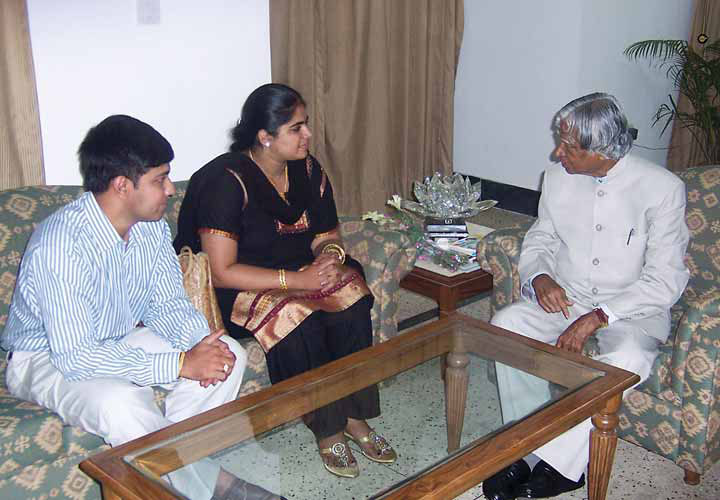
When I came to Pune, I initially joined Fergusson College but after 10 days, decided to leave as I was not accustomed to so much socialising. I wanted a place where I could concentrate on my studies and prove myself, which took me to SP College. During those days, I used to wake up at 4 am, go to a newspaper vendor, read the newspaper for free, and then tie the newspaper bundles for him.
I tried to get maximum knowledge or input, whichever way possible. It helped me help a lot of people. For example, I suggested to my hostel-mate Ashish Tawade to become a pilot since he was very good at mathematics. Today, he, with this input and with his own efforts is a fighter jet pilot in the Indian Air Force. My other friend Sujit Bangar, whom I suggested he join the civil services, is an IAS officer with the Department of Finance. So my inputs were going in the right direction, helping people guiding their career.
It was my friend Siddharth Vijay Seshan, a Major in the Indian Army who inspired me to join the Army. At that time I was awaiting the results of both the exams -- the Indian Civil Service and the Army. I had decided to take up the first one that came my way. I got selected for both, the OTA (Officers Training Academy), Chennai and the IMA (Indian Military Academy), Dehradun, but I chose the OTA. I was the first in my family to join the defence services. I served in the Indian Army with Infantry and Corps of EME.
Life at OTA was very rigorous. Initially, unaccustomed to such harsh physical rigour and discipline, you felt you were being treated badly! They give you an initial two weeks to decide whether to continue or not. Two factors helped me go through the initial period: first, the very need for me to become an officer. Second, the comfortable salary I could earn as a government employee.
After that, in September 2002, I got posted to the Sikh Light Infantry regiment, a tad dramatically. While at the OTA, my company commander asked me what I wanted to become in the army. I replied, “I don’t know which particular corps to join as such. I simply want to become an army officer, that’s all.” On learning that I was a Physics graduate with distinction, he said that he would ensure that I got into the EME (Electronics and Mechanical Engineers).
My commander, Rakesh Sharma also assured me that he would see to it that I got into the EME. I initially went on a deputation to the 9 Sikh Light Infantry. I was warned that I wouldn’t survive there for too long in the company of Punjabis who enjoyed the very things I stayed away from—swear words and non-vegetarian food! I took this as a challenge and thus joined the 9 Sikh Light Infantry. I was really fortunate to join it because it has produced the maximum number of Army Generals, including Gen. VP Malik. My battalion was posted to Sri Ganganagar, on the Rajasthan border. From there, we were posted to Kargil, post the Kargil War. Even our convoy was bombarded at that time. We still kept on moving.
From there, I, with my assigned group, moved along to Siachen acclimatisation training where we had six months of rigorous training. Though it was more strenuous than the OTA, by then I had developed a liking for life in the defence forces. And as a young bachelor, I enjoyed the hardship. So moving to Siachen with 9 Sikh LI became a great opportunity. Any Siachen tenure comes once in 15 to 20 years in an officer’s career, and comes with quality points that help his career.
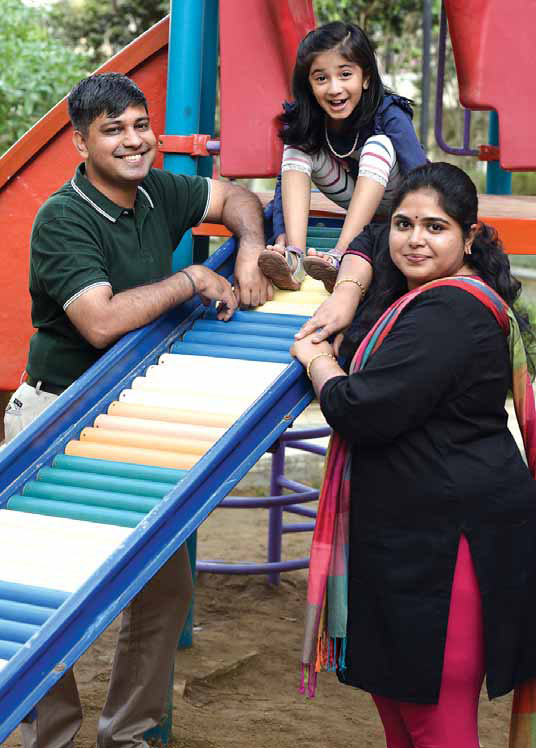
At one of the evening dinners at the officers’ mess, our Commanding Officer Col. DP Pandey asked, “Who will go for the winter tenure to Tiger LP where the last Battalion had two Officers martyred and one Officer with HACO barely survived?” There was pindrop-silence. I volunteered to go to Tiger LP (listening post) in Siachen—the farthest, world’s highest and coldest and severest battle place on earth—which was appreciated by Col. Pandey. During the preparatory Sainik Sammelan, our CO asked the jawans, who they would like to go with—either myself or the other two officers. About 300 hands raised for me. When he asked them why, some jawans said I did not admonish them with swear words, that I valued them as persons, that they would love to go with me because they knew I would save them. That made me feel really proud. Sixty of them were selected and they came with me as the first team to climb Siachen and take over from the previous battalion.
I am an ICE CRAFT Trainer (this training enables you to teach people how to climb ice walls and pass crevices), a yoga trainer and a strict follower of land and weather prevention rules, which helped me get through the Siachen tenure in the peak of winter with no casualty. We travelled 117 km on foot on ice to reach there. It used to take 26 to 32 days to reach that height, which we accomplished within 16 days—that’s a record.
I did nothing special to achieve this feat, except deciding amongst ourselves that we would have smaller halts than longer ones, considering the extreme winter cold. With longer halts, there were more chances of frostbite, while marching would help retain heat in the body. We were already fully trained. Besides, there is a saying, ‘the more you sweat in peace, the less you bleed in war’. So we used to walk 14 kms of uphill climb daily, from 12,000 ft to 18,600 ft at Khardung-latop, with 21-kg packs on our backs.
Being future-ready in the army means you are ready for any kind of alarming situation or war, for which we keep on doing these battle drills, re-checking of things. These drills and rechecks are not there in corporate life. Here it is taken as an expertise - if somebody knows it, only he knows it, I don’t need to know it
Eventually we reached the destination, Tiger LP, at 21,500 ft above sea level, temperatures between -40° to -60°. And I have a personal record, for which I got a commendation. I lived there for 112 days, that too, without any kind of casualty in the total team that I had with me. The actual tenure to be spent at that post is 45 days, but I spent 112 days. I remember, there was a 20-day period of snow blindness, where all you could see was the white of the snow and nothing else. We also survived an avalanche. I want to put this 20 days’ experience into a book, which will give an insight into life in Siachen. When we had to pick barrels from three kilometres down the post, my jawans really slogged hard doing that. And to cater for them, I had nothing except canned food items like beans, baked beans, chicken, dry fruits like pistachios, almonds, cashews, chocolates, tinned spinach and atta and other stuff from which I myself used to make jalebis and samosas—since I am a good cook. I also used to teach them yoga. All these helped us survive at these temperatures. And definitely, sticking to place- and winter-specific mandatory precautions also helped.
As for supplies, you have to go to the dropping zone, fetch them and come back to your tent. Our Indian tents are of the worst quality. We had to dig 16 ft below to retrieve the 1984 Russian tents which were there earlier.
Post this tenure, I picked up the duty of adjutant, who basically looks after the discipline of the battalion and supports the colonel of the regiment. It is like the post of ADC—aide-de-camp, in the army. In corporate life, it can be described as the role of an executive assistant, where you help employees grow to become future leaders in your organisation.
At the Chandigarh air base, Rs.35 crore worth of items are shipped every month to Siachen, to supply to the three battalions posted there. Col. DP Pandey exhorted me to get an extension in order to grow to a Lt. General in the Infantry. I rejected the idea because I wanted to further my career in the EME and pursue my BE in the College of Military Engineering, Pune, and try for a three-year deputation to the DRDO (Defence Research and Development Organisation). The aim was to join an expedition to Antarctica -- to achieve my dream of becoming a man in outer space.
I was shifted to Balapur Garrison, near Shopian, which is the bastion of the militant group Lashkar-e-Taiba. I participated in two counter- insurgency operations during my five-month tenure there. I wish to translate these experiences too into a book on HR.
The role, ‘Dealer HR - Channel Partner HR’ is meant for designing an HR framework, managing the Dealership HR model and standardising people management and having organisational SOPs in place. I am the sole person today in India in this role. I did it in the two-wheeler sector with TVS and now I am doing it in the four-wheeler sector with Mahindra
There I was given a battalion with EME which was considered a ‘punishment posting’ with its so-called unruly troops, comprising many seniors risen from the ranks, not the usual specially trained personnel for such positions. I willingly went there.
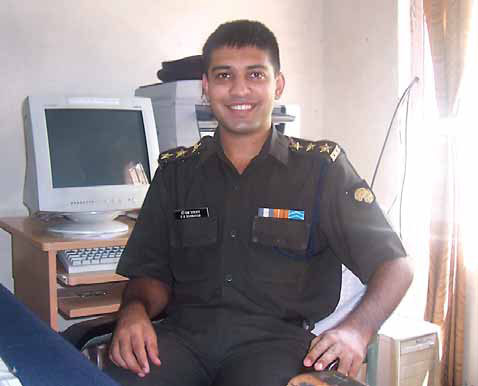
On the morning that I took charge, I met them and asked them what they wanted from me. They kept quiet. Then one sardar jawan got up and said, “Sir, it is 11 months since I got leave, I want 10-days’ leave.” I said, granted. Immediately, another one stood up and protested that this man’s absence would hamper his work. I asked whether he would be able to manage the work of his colleague during his absence. He said yes, but he would need additional help for an hour and a half every day. I said I would help him. Since I was trained technically, I could help in such a situation.
Then a generator mechanic said there were two generators on the field for power back-up in an emergency, such as power disruption by terrorists. He said one was lying non-functional since the past three months. “In the military, even a minute is a big thing! How come you are sitting here for three months?” I asked. He said though he had joined this cadre, he was actually only a clerk and not a technician. After joining, he had learnt only half of the generator mechanic’s job, so did not go for the repairs along with the convoy. After much prodding, he said he didn’t know how to remove the piston and put the rings. I immediately assigned him to learn, over the next eight hours. The next morning, he joined the convoy and repaired the generator.
One night I found a havildar drunk and dozing off in his trench, on night duty. JCOs under me urged that I punish him hard. I asked them to take the havildar to the barracks, tie him up with his rifle to his belt with a chain and lock it. They demurred that such an un-soldierly thing was not done. I said do this now at night and let’s see what happens in the day. The next morning, the havildar, on waking up and being told that it was done on my orders and that it was also my order not to punish him, came running to me. He accepted his mistake and promised he would not drink when on night duty. He changed after that night. He also said he had eight jawans who had not gone on leave for the past 18 months, so he would send four on leave for Diwali and the rest four after these had rejoined duty. Along with the other soldiers he would handle the full technical service requirements of the brigade. I said, are you serious, will you be able to keep your word? Yes, he said, and ensured, as a good havildar, that all his 20 people availed leave within 30 days without compromising on the duty requirement of the unit.
Such thinking has come to me through my traditional Brahmin way of upbringing and teachings put in a simple way in the Thirukurals (voice of Saint Thiruvalluvar) who lived during third century BC — how a person can live throughout his lifetime as a good human being. The translations of Thirukurals are available in English as well. There is one kural that says, ‘The word is the same, it depends on the way it comes through a person’s mouth and the way it is perceived by the listening person’. This one saying has helped me become a good listener. Thirukural also talks about the 5Ps which we follow as principles of marketing today, prescribed in 3 B.C. itself!
I wanted to continue. However, after a few years, my wife felt I should have a career elsewhere, in order to pay more attention to my family. My mother’s health too began to fail. The suggestion also came from two of my previous colonels. Col. DP Pandey used to tell me that either I should be in the Sikh LI or move out! Col. Nair, during my first interaction, had told me, “Son, you are best suited for the outside world.” So these were some inputs that helped me take the decision.
This step fortunately helped me to be with my mother for eight more months. That was the only time I spent with her. When anybody came to our house and enquired about me, she would innocently say her son was an officer in the Army, Navy and Air Force! And this, despite her being a graduate, an MA and a teacher. She was happy with the fact that her son was an officer, no other details mattered. And should somebody ask how come she sent her only son to the armed forces, her answer would be, “My son has told me that now I am not only a mother but Mother India also!” That way she lived up to her aspirations. I could fulfil her small wishes like taking her out in a car driven by her son, an aeroplane flight with the family, and getting back her gold bangle which had been mortgaged when I joined the army.
As Defence officers with merit ranking, you have the opportunity to pursue executive management programmes in the top 20 management institutions in India. It is a six-month program for military officers and helps them to transit into corporate life, giving a good insight into the corporate thought process and management details. I was the placement officer for the NMIMS defence officer batch 2008-09. As a team, we were able to achieve 60 percent placement before the end of the course, despite it being at the peak of the economic recession.
Dr MC Agarwal, the HR Professor at NMIMS insisted that I continue with a career in HR, looking at my people skills. I joined Future Generali for their northbound requirement as Regional HR, and later became their zonal campus recruitment head. Being in the insurance sector, there were a variety of things to handle, like fake insurance cases or recovery of money, etc. All these helped me learn how things can be set up, and we grew from a small entity to a big one in our region, growing to eight branches within six months.
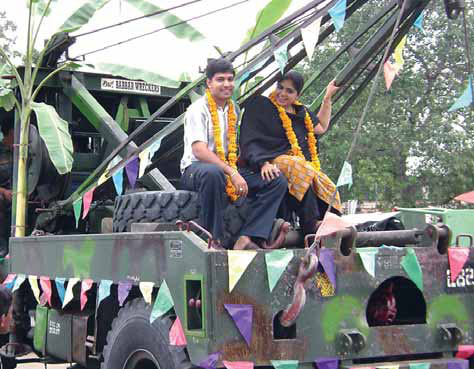
When we say military technique, it usually means a structured and standardised process that is followed in the entire organisation. The corporate sector is still an unorganised one in VUCA. There are no set rules, as in the army. It was clear in my mind that I was going from a structured and organised set-up to an unorganised one, with its own pros and cons. I had seen as well as experienced how an organised world works. So the benchmark was already with me, which I would replicate in my organisation wherever appropriate. Tidiness, uniformity, cleanliness, hygiene—these were some areas where I applied military techniques in my corporate jobs.
Defence Service Regulations have SOPs (standard operating procedures) on how to align each work order in the military organisation. Let me take you to the first SSB before joining, which we confront after the CDSE written test. We have Group Task Officers (GTOs) who assess the physical and visible traits of officers. These GTOs and some eight or nine psychologists sit along with the SSB Centre Commanding Officer to interview and select the officers in those four- five days. In civil life, such a selection process is known as the competency-based interview or CBI model. It is actually based on the theory by C G Jung, the German psychologist. According to him, out of 100 military officers, you need, not more than 12 intellectuals, 48 with average IQ, and the rest can all be below-average, so that they meet the requirement throughout their life cycle to live happily in their roles and military organisation structure. They also conduct a psychology test on a 106 traits-check. Even a single trait is not compromised. I have adapted these learnings of the military and many more from my exposure to a military lifetime, while understanding the training interventions needed for individuals to grow as efficient leaders and managers in the corporate world.
In terms of personality and attitude, youngsters in the military are the same as their counterpart in the corporate sector when they join. Military Officers change to the organisation culture because of the rigour. Secondly, they are already given a goal, and they have no choice but to accomplish it. In the armed forces, you enter a more standardised organisation where things are already set. You go there to make it more proficient, or maintain it.
On the other hand, in the corporate sector, people join day in and day out to disrupt whatever is already there; we don’t want a sanitised approach. Every time we expect something new -- you have to be innovative.
This is the gap between the military youngster and a corporate youngster. A phrase that separates military youngsters from their corporate counterparts is ‘esprit de corps’, meaning, ‘I belong to this organisation’. That is the mindset of a youngster in the military, whereas, the mindset of a youngster in the corporate is ‘zero-percent loyalty’, ‘I don’t belong here, I only work here’.
There is another way to describe this difference - there I worked more for the organisation, here I work more as an individual.
Finally, in the army I cannot work without a team. I am always known for my team and I am cherished as a team player. Here I don’t always need to work in a team.
In getting the dealers to get standardised, they have to opt for a people-centric approach rather than the money-minded mindset they typically have. Like my jawans, who, despite their minimum education and modest monthly salary of Rs.10,000-15,000, are happy with their proud role in the army. My job is to bring the dealers to that level, in this ecosystem
One positive which I had, compared to many military officers, is that I have seen civil life in and out. But people who go straight after NDA, when they come out as senior commissioned officers, say at the age of 50 for a second career, find it very difficult because the hierarchy and position they had there, is different here. If I don’t become humble, I cannot work in corporate life.
Military life actually is a very balanced life. Worklife balance is very high there. You do work 24×7, but you get time for yourself - the work is distributed. If I am an officer, there are 20 more officers in the garrison, in the same building. There is also difference in the way the work is shared or distributed. If you are responsible for functional activities, you will be the manager, handling HR, sales, maintenance, marketing, everything. And you will have people - Junior Commissioned Officers (JCOs) - reporting to you from each work structure. On the other hand, in the corporate, for every function, there is a different departmental head in the rank of officer who is more a subject matter expert than leader.
Secondly, the aspect of security is of utmost concern. To maintain the security of that garrison, each officer from each battalion is prescribed a day’s work as a garrison field officer. He works those nights 24×7, the rest of the nights he can get at least six hours of good sleep. And in the evening during playtime, we ensure that jawans also come and burn calories so they continue to remain fit, future-ready. For us, future-ready means you are ready for any kind of alarming situation or war, for which we keep on doing these battle drills, re-checking of things. These drills and rechecks are not there in corporate life. Here it is taken as an expertise: somebody knows it, only he knows it, I don’t need to know it.
Change is taking place, but it varies from company to company because it involves change of mindset as well. In value-driven companies, i.e. where people are valued more, your acceptance for standardising will be higher. Like TVS where I served, our acceptance was very high. After I joined, they took in eight more officers. Secondly, even at TVS, I detected a sense of being daunted by having to work under an army man. So to clear that gap, I had to release HR weekend mailers describing the valour displayed and the kind of exposure an army officer or a jawan gets during his professional life and career. Then they started valuing you more.
A phrase that separates military youngsters from their corporate counterparts is ‘espritde corps’, meaning, ‘I belong to this organisation’. That is the mindset of a youngster in the military, whereas, the mindset of a youngster in the corporate is ‘zero-percent loyalty,’ ‘I don’t belong here, I only work here’
When I joined, I was told, I only had five to six years of military service. But in those six years, the exposure we have is equivalent to 15 to 20 years in the corporate world. These are some gaps we need to bridge. Unless and until you are open to explain it, people won’t know it.
For example, during my interaction with the Chief Sales and Marketing Officer while being recruited for this unique job role of Dealer HR, I was told that being an army officer, I did not have any experience in sales and marketing.
“Sir, I have lived a sales and marketing life, in terms of vendor management and other things,” I said.
“Fine, but you can’t sell,” he said.
“No,” I said, “I am a better seller than you too,” I said.
He got furious. “I have a 35 years’ career in sales, so how can you say that?” he said.
I asked him, “have you sold a man to sell his own life?”
“I have never done that,” he said.
I said, “But I have done that. Now cars and all these things are non-living things. I definitely can sell these non-living things or two-wheelers with TVS.”
Later on, he opened up, saying that he himself had a Sainik School background.
I had that option too. For an infantryman, becoming a security officer would be a comparatively comfortable job, supervising people under you, checking whether they are following the SOPs or not.
But there are people who want to utilise their potential and skills gained in the armed forces, to grow and flourish on challenges in a different domain in their second career.
The role, ‘Dealer HR – Channel Partner HR’ is meant for designing an HR framework, managing the Dealership HR model and standardising people management and having organisational SOPs in place. I am the sole person today in India in this role. I did it in the two-wheeler sector with TVS and now I am doing it in the four-wheeler sector with Mahindra. This Dealer HR role has existed in the US and western countries since the last century. It is now being brought here, now that the automobile sector is going through the transition that the western world went through during the 1970s.
Dealerships are channel partners who support with the retailing and servicing of vehicles in their earmarked operational territories. In the American context, dealers were carefully selected, trained, placed and successful dealerships blossomed and the same models were replicated. For example, Walmart, where you could get standardised service. So standardisation was done before, and replication came after.
When we say military technique, it usually means a structured and standardised process that is followed in the entire organisation. The corporate sector is still an unorganised one in VUCA. There are no set rules, as in the army
In India, it is a reverse phenomenon, replication followed by standardisation. Dealers were selected based on their business potential and influence in the local market, proximity to powerful political figures, and of course their financial position. While it helped establish a country wide network of dealerships and showrooms, standardisation in terms of parameters of service and values followed later.
In my role as Dealer HR, I am doing exactly that. Establishing dealership organisation and manpower capability development and a management framework. Earlier, factors such as knowledge level, quality level, etc. were not checked, all these dealerships are being groomed and standardised in this next phase of expansion. That is my intervention with respect to the HR policy, structure, process, putting the right people in place, getting them into the recruitment cycle, etc.
When TVS called me for an interview, the first question I asked them was, “How many HR people do you have?” They said they had 48. I asked them why none of them took up this role. They were afraid of the risk it could bring to their career, I was told. And that clicked as my opportunity.
In getting the dealers to get standardised, they have to opt for a people-centric approach rather than the money-minded mindset they typically have. Like my jawans, who, despite their minimum education, despite the modest monthly salary of Rs.10,000-15,000, are happy with their proud role in the army. My job is to bring them to that level in this ecosystem.
Apart from being Quality Administrators, Educators, Motivators and Human Resource Managers, Army Officers have industry-ready experience for which they are most suited for
| Army Service Corps | Facilities Management / Logistics / Supply Chain / Liaisoning / PRO |
| Army Ordnance Corps | Facilities Management / Logistics / Supply Chain / Parts Manufacturing |
| Corps of EME | Automobile / Oil & Natural Gas Industries / Auto Parts & Component / Vendor Management / Vehicle and Engineering Equipment Manufacturing / Aftermarket |
| Corps of Engineers | Automobile / Construction / Oil & Natural Gas Industries / Auto Parts & Component / Vendor Management / Vehicle and Engineering Equipment Manufacturing / Aftermarket |
| Infantry | Sales and Marketing (any product range) / Infrastructure Management & Maintenance / Facilities Management / Supply Chain Management / Liaisoning / PRO |
| Military Police | Industrial Hygiene and Safety / Manufacturing and large infrastructure locations / Traffic Management |
| Artillery | Sales and Marketing (any product range) / Infrastructure Management & Maintenance / Facilities Management/ Heavy Engineering and Manufacturing industries / Steel and Metal industries |
| Armoured / Tank Regiment | Sales and Marketing (any product range) / Infrastructure Management & Maintenance / Facilities Management/ Heavy Engineering and Manufacturing industries / Steel and Metal industries |
| Army Education Corps (AEC) | Education Sector / Training and Development |
| Army Medical Corps | CMOs and Specialists for Hospitals and Diagnostic Clinic Management |
| Corps of Signals | Information Technology Sector / e-Commerce / Electronics and Electrical industries / Automobile parts manufacturing |
Yes, it is improving, and we have restructured the dealership organisation in line with future requirements of a retail and service business cycle. Much has been accomplished, but a few more years of intervention are required. Then sustaining the same will be the next call.
What I have achieved in the last three and a half years at Mahindra is that now there is clarity in dealership employee information, and senior management can get all information up to the last dealership employee, sitting in one place.
Also, the digital medium has been established with the support of the Mahindra IT team, so we can now have cost and time saving virtual classrooms and e-learning modules. The next year’s cycle will help us see further benefits we can give to the business to improve their productivity with big data coming from these interventions of people management and capability building at Dealerships. The Mahindra Automobile Division has achieved measurable monetary and time benefit with these interventions.
After her first dramatic welcome into married life, Vidhya, wife of Capt. C S Raghavan found Army life enjoyable. Her decisions on giving up her job, turning homemaker, or going back to work were pragmatic and practical. At the root of it all, you need to be happy, she says
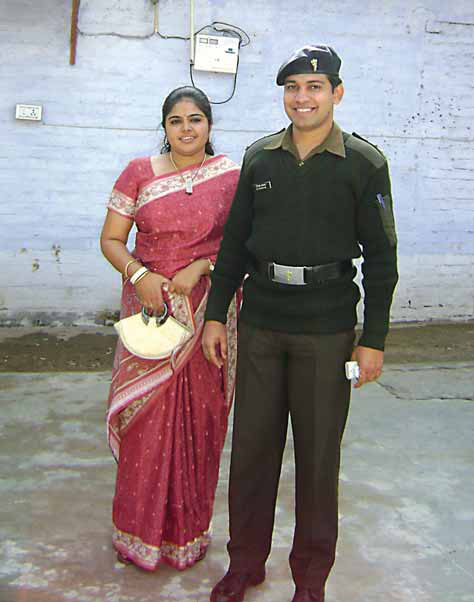
On an average, 13 to 14 hours every day, six days a week. Although I find it very difficult to get long leave, I make sure I spend quality time with my wife and daughter.
Imagine this situation: You are newly married and are whisked off by your husband’s colleagues to an unknown place. They conspire to keep you in isolation for three days. What do you do? Vidhya Raghavan kept her cool and found a way to contact her hubby on the first day itself.
Vidhya, a seventh-generation lawyer, specialising in Intellectual Property Rights and Corporate Law, hails from a noted family of freedom fighters from Chennai. She married Capt. C S Raghavan on June 13, 2008. At that point of time, he was still serving in the Army and was posted at Amritsar.
Narrating the incident, she states, “After our marriage, we went to Amritsar by train. Army officers came to receive us. They had nicely decorated the recovery truck to pick us up. They made us exchange garlands in the crowded Amritsar station, showering flowers, clapping and wishing us well. They took us around Amritsar Cantonment in that decorated vehicle, singing songs. Then we were taken to the Unit’s temple and made to sweep the temple floor, saying it was customary to do so. Apparently, my husband, the adjutant at that time, had made other newly wedded officers do such tasks.”
Then the officers separated them and took Vidhya to another Cantonment, 20 km away near the Wagah border, saying there was a puja at the Commanding Officer’s house. Says Vidhya, “I did not know a single word of Hindi, being from Chennai. I had left my phone with Raghavan while sweeping the temple floor, so we could not communicate with each other.”
The officers had planned to keep them apart for two-three days. Vidhya got very worried. Says she, “I did not eat anything the whole day. Then luckily when a staff of the officers’ mess came there, I asked for his phone. Since the request was from a lady, he could not refuse. I called Raghavan and told him the location, and he came down. These little instances were a way of welcoming newlyweds into the Army family. Looking back, I realise it is the army’s way of preparing you for an army way of life.”
Reminiscing on the reason behind the prank,she says, “When one of the officers, Capt. Yogendra Deshmukh came from Hyderabad with his new bride, Sampada, Raghavan played a prank, sharing a letter with him from the Rashtriya Riflis meant he had to be away from his wife for two years. This made them cry a lot, so this was payback time for them.”
Five-year-old Yuktha, daughter of Vidhya and C S Raghavan, is already a star. Her deep interest in astronomy has stunned her parents.
Says Vidhya, “My daughter is only five-and-a-half and reveals signs of higher IQ. She has started showing interest in everything very early, even in subjects like astronomy and paleontology. She started reciting the periodic table when she was just three.
When other children start learning ‘A’ for ‘apple’, she was saying ‘A’ for ‘Andromeda’, which I never taught her. We had some books on astronomy which she started browsing, and was so inquisitive, she used to ask questions about it. Fortunately, she had good mentors like Dr JV Narlikar and Arvind Paranjpye of IUCAA. She reads a lot of books and attends sky-watching sessions. She started speaking by six months and was fluent by nine months.
“When she began reading early for her age, I started consulting people with experience in bringing up gifted children like her. By three, she would tell me things in astronomy I never knew. By age four, she started observing the stars and planets using a telescope. Initially, we did not realise she was different, or gifted. I then researched to find out more about such kids. I enrolled her into a two-year distant learning EGPY curriculum for gifted children by Stanford University. She is currently working on a fiction based book on astronomy for kids.”
When did she meet Raghavan? Says Vidhya, “In 2006, through a common friend, now Major Srikanth, my schoolmate and an officer junior to Raghavan. But I was not ready for it yet. We started talking to each other once in a while. In 2007, he reached me through Orkut, the then popular social networking site, wishing me a ‘Happy Teachers’ Day’.”
Vidhya soon came to know of his courage and ability. Says she, “I always wanted to get married to a person who was a high achiever. I was overawed by Raghavan’s Siachen experience, where he lived for 112 days, at a height of 21,500 ft. above sea level, with temperatures between -40° to -60°. Then we met in Ahmedabad, with our parents’ consent. I was there on official work, he came from Amritsar to meet me. I conveyed my assent to my parents and that’s how it happened. I found him extraordinary.’
Says Raghavan, “The first time I saw her in a photograph in a Saree, she seemed to carry herself well. She had all the attributes of a lady, that is what I liked most about her.” He adds fondly, “I like her words of caution on any office activity I share with her. Her selfless dedication, perfection in action and an eye for detail is admirable.”
After a brief stint in the District Court, Vidhya worked for a year in a corporate office, but gave it up after marriage.
How did she manage the switchover? Says Vidhya, “It was not difficult, but it was totally different and I enjoyed it very much. Being with Army officers’ wives and a part of the Army Wives Welfare Association (AWWA) is like being with family.”
By four, she started obser ving stars and planets using telescope. Initially, we did not realise she was different, or gifted. I then researched to find out more about such kids. I enrolled her into a two-year distant learning EGPY curriculum for gifted children by Stanford University
BY VINITA DESHMUKH